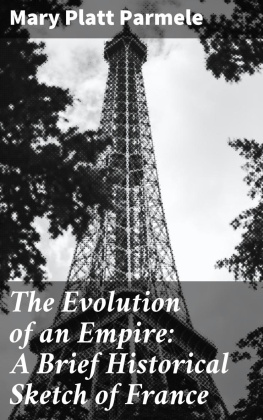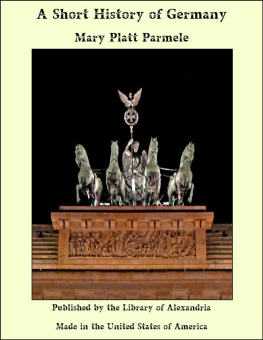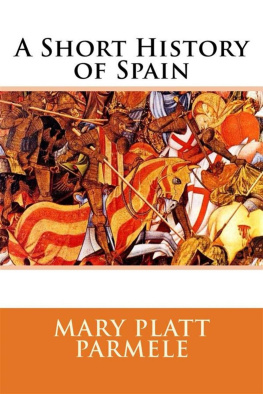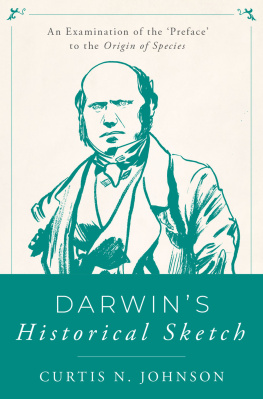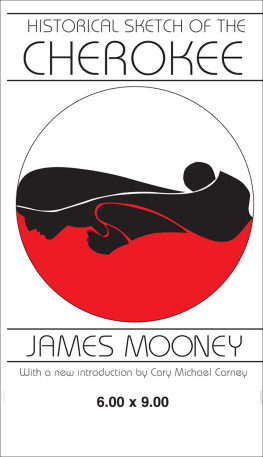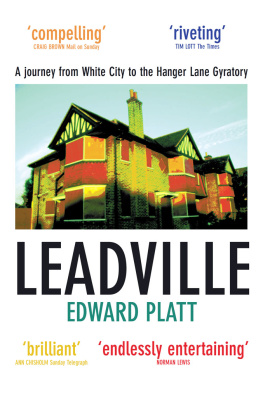EVOLUTION OF AN EMPIRE.
Table of Contents
CHAPTER I.
Table of Contents
One of the greatest achievements of modern research is the discovery of a key by which we may determine the kinship of nations. What we used to conjecture, we now know. An identity in the structural form of language establishes with scientific certitude that however diverse their character and civilizations, Russian, German, English, French, Spaniard, are all but branches from the same parent stem, are all alike children of the Asiatic Aryan.
So skilful are modern methods of questioning the past, and so determined the effort to find out its secrets, we may yet know the origin and history of this wonderful Asiatic people, and when and why they left their native continent and colonized upon the northern shores of the Mediterranean. Certain it is, however, that, more centuries before the Christian era than there have been since, they had peopled Western Europe.
This branch of the Aryan family is known as the Keltic, and was older brother to the Teuton and Slav, which at a much later period followed them from the ancestral home, and appropriated the middle and eastern portions of the European Continent.
The name of Gaul was given to the territory lying between the Ocean and the Mediterranean, and the Pyrenees and the Alps. And at a later period a portion of Northern Gaul, and the islands lying north of it, received from an invading chieftain and his tribe the name Brit or Britain (or Pryd or Prydain).
If the mind could be carried back on the track of time, and we could see what we now call France as it existed twenty centuries before the Christian era, we should behold the same natural features: the same mountains rearing their heads; the same rivers flowing to the sea; the same plains stretching out in the sunlight. But instead of vines and flowers and cultivated fields we should behold great herds of wild ox and elk, and of swine as fierce as wolves, ranging in a climate as cold as Norway; and vast inaccessible forests, the home of beasts of prey, which contended with man for food and shelter.
Let us read Guizot's description of life in Gaul five centuries before Christ:
"Here lived six or seven millions of men a bestial life, in dwellings dark and low, built of wood and clay and covered with branches or straw, open to daylight by the door alone and confusedly heaped together behind a rampart of timber, earth, and stone, which enclosed and protected what they were pleased to calla town."
Such was the Paris, and such the Frenchmen of the age of Pericles! And the same tides that washed the sands of Southern Gaul, a few hours later ebbed and flowed upon the shores of Greecerich in culture, with refinements and subtleties in art which are the despair of the world to-daywith an intellectual endowment never since attained by any people.
The same sun which rose upon temples and palaces and life serene and beautiful in Greece, an hour later lighted sacrificial altars and hideous orgies in the forests of Gaul. While the Gaul was nailing the heads of human victims to his door, or hanging them from the bridle of his horse, or burning or flogging his prisoners to death, the Greek, with a literature, an art, and a civilization in ripest perfection, discussed with his friends the deepest problems of life and destiny, which were then baffling human intelligence, even as they are with us to-day. Truly we of Keltic and Teuton descent are late-comers upon the stage of national life.
There was no promise of greatness in ancient Gaul. It was a great unregulated force, rushing hither and thither. Impelled by insatiate greed for the possessions of their neighbors, there was no permanence in their loves or their hatreds. The enemies of to-day were the allies of to-morrow. Guided entirely by the fleeting desires and passions of the moment, with no far-reaching plans to restrain, the sixty or more tribes composing the Gallic people were in perpetual state of feud and anarchy, apparently insensible to the ties of brotherhood, which give concert of action, and stability in form of national life. If they overran a neighboring country, it seemed not so much for permanent acquisition, as to make it a camping-ground until its resources were exhausted.
We read of one Massillia who came with a colony of Greeks long ages ago, and after founding the city of Marseilles, created a narrow bright border of Greek civilization along the Southern edge of the benighted land. It was a brief illumination, lasting only a century or more, and leaving few traces; but it may account for the superior intellectual quality of the southern provinces in future France.
It requires a vast extent of territory to sustain a people living by the chase, and upon herds and flocks; hence the area which now amply maintains thirty-five millions of Frenchmen was all too small for six or seven million Gauls; and they were in perpetual struggle with their neighbors for landmore land.
"Give us land," they said to the Romans, and when land was denied them and the gates of cities disdainfully closed upon their messengers, not land, but vengeance, was their cry; and hordes of half-naked barbarians trampled down the vineyards, and rushed, a tumultuous torrent, upon Rome.
The Romans could not stand before this new and strange kind of warfare. The Gauls streamed over the vanquished legions into the Eternal City, silent and deserted save only by the Senate and a few who remained intrenched in the Citadel; and there the barbarians kept them besieged for seven months, while they made themselves at home amid uncomprehended luxuries.
Of course Roman skill and courage at last dislodged and drove them back. But the fact remained that the Gaul had been theremaster of Rome; that the ironclad legions had been no match for his naked force, and a new sensation thrilled through the length and breadth of Gaul. It was the first throb of national life. The sixty or more fragments drew closer together into something like Gallic unitywith a common danger to meet, a common foe to drive back.
Hereafter there was another hunger to be appeased besides that for food and land; a hunger for conquest, for vengeance, and for glory for the Gallic name. National pride was born.
For years they hovered like wolves about Rome. But skill and superior intelligence tell in the centuries. It took longand cost no end of blood and treasure; but two hundred years from the capture of Rome, the Gauls were driven out of Italy, and the Alps pronounced a barrier set by Nature herself against barbarian encroachments.


